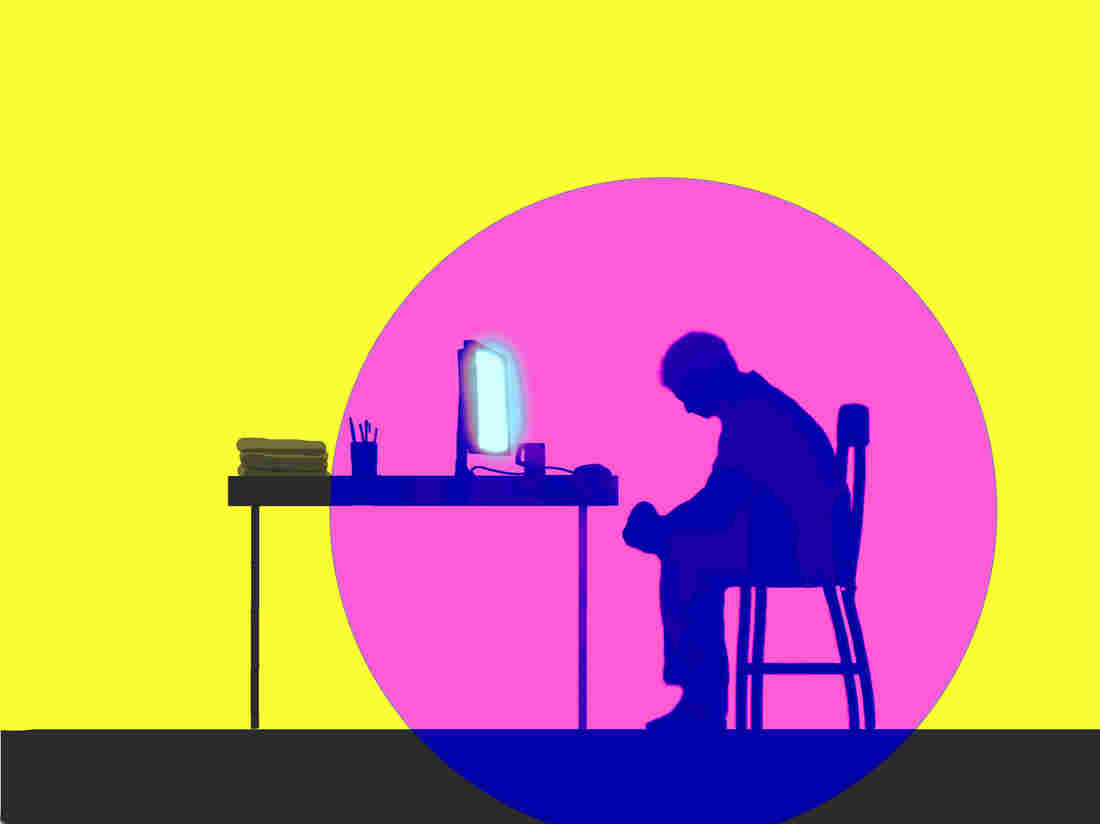
America is waiting on the results of a close and contentious election. An American Psychological Association poll showed that more than two-thirds of adults are finding the 2020 election to be a significant source of stress. Fanatic Studio / Gary Waters/Getty Images/Collection Mix: Sub
America is waiting on the results of a close and contentious election. And we're not sure when we'll know who won.
But one thing both parties can agree on? They're stressed.
An American Psychological Association poll showed that more than two-thirds of adults are finding the 2020 election to be a significant source of stress. This includes 76% of Democrats and 67% of Republicans.
That's because we're dealing with a sense of "chronic uncertainty," said Judson Brewer, director of research and innovation at the Mindfulness Center at Brown University.
The tension from the pandemic coupled with that from an unresolved election can create high levels of anxiety, he said.
Did we mention that today is National Stress Awareness Day?
Here are some ways to deal with increased stress and anxiety.
Practice breathing
When dealing with stress your body can trigger a "fight or flight" response, Brewer said. So the first step is to ground yourself, which you can do with mindful breathing.
Brewer details a process called five-finger breathing, which he also demonstrated on a recent episode of NPR's Life Kit.
This process helps to pause, distract yourself and "reboot your brain," he says.
Here's how you do it.
- Place your index finger on the outside of your pinky on the opposite hand.
- Use your index finger to begin tracing your finger, inhaling as your trace up. When you get to the top, pause, and then trace downward, exhaling as you do.
- Repeat this process for each finger, inhaling as you trace up and excelling as you trace down. When you get to your thumb, repeat the process across all your fingers again.
Stop doom scrolling
Doom scrolling refers to the self-destructive habit of endlessly scrolling through negative news. Experts tell us it's eroding our mental health.
"With the election, or with the pandemic I think one question that we can ask ourselves is: 'Is it helpful for my mind to be here?'," said Eric Loucks, director of the Mindfulness Center at Brown University. "If not, can you bring your mind to a place where it is helpful for you?"
One thing that can help? Taking a break.
Loucks said if you find yourself in a downward spiral fueled by the news cycle, then interrupt that cycle. Find a distraction.
It can be something small, like enjoying a hot beverage or taking a walk. Or it can be talking with friends or watching TV. But the important thing is to not dwell on information if it's causing harm.
Get some exercise
Exercise is one of the most recommended ways to reduce stress. But it doesn't necessarily require a trip to the gym.
"It doesn't have to be vigorous exercise, it turns out," Brewer said. "I recommend this to my patients in my clinic — a couple of times a day go out for a 15 minute brisk walk, especially if it can be near or in nature. [It's] tremendously healing."
Almost any type of exercise can help. Even low-intensity physical activity can help counteract stress-induced inflammation.
Talk with friends and family

Maintaining social contact is an important part of keeping stress and anxiety at bay. Vesnaandjic/Getty Images
The pandemic already has caused less social interaction and research shows this can also makes us feel more anxious.
"People are naturally social creatures and the reduction in human interaction can increase feelings of anxiety, isolation and stress," said Daniel R. Wilson, president of Western University of Health Sciences.
Talking with family and friends — even just on a video or phone call — can help those who are stressed out. So can spending time with pets. Just try limiting the conversation to topics that aren't creating tension.
"Those truly personal connections are healing and therapeutic," Brewer said.
Meditate and practice mindfulness
The thousands-of-years-old practice can help you deal with modern problems. Research shows that meditation can help reduce anxiety, stress and depression.
There are numerous free resources online to practice meditation. Brown University provides free mindfulness classes on its website. Brewer is also a fan of Headspace, which provides app-based guided meditation and offers a free trial.
"If we're overwhelmed by the results of the election or by the pandemic, it can be hard to put our mind somewhere else," Brewer said. "And that's where meditation training can come in."
"with" - Google News
November 05, 2020 at 07:02AM
https://ift.tt/2TWzzxw
Election Got You Stressed? You're Not Alone — Here's 5 Ways To Deal With It - NPR
"with" - Google News
https://ift.tt/3d5QSDO
https://ift.tt/2ycZSIP
Bagikan Berita Ini















0 Response to "Election Got You Stressed? You're Not Alone — Here's 5 Ways To Deal With It - NPR"
Post a Comment